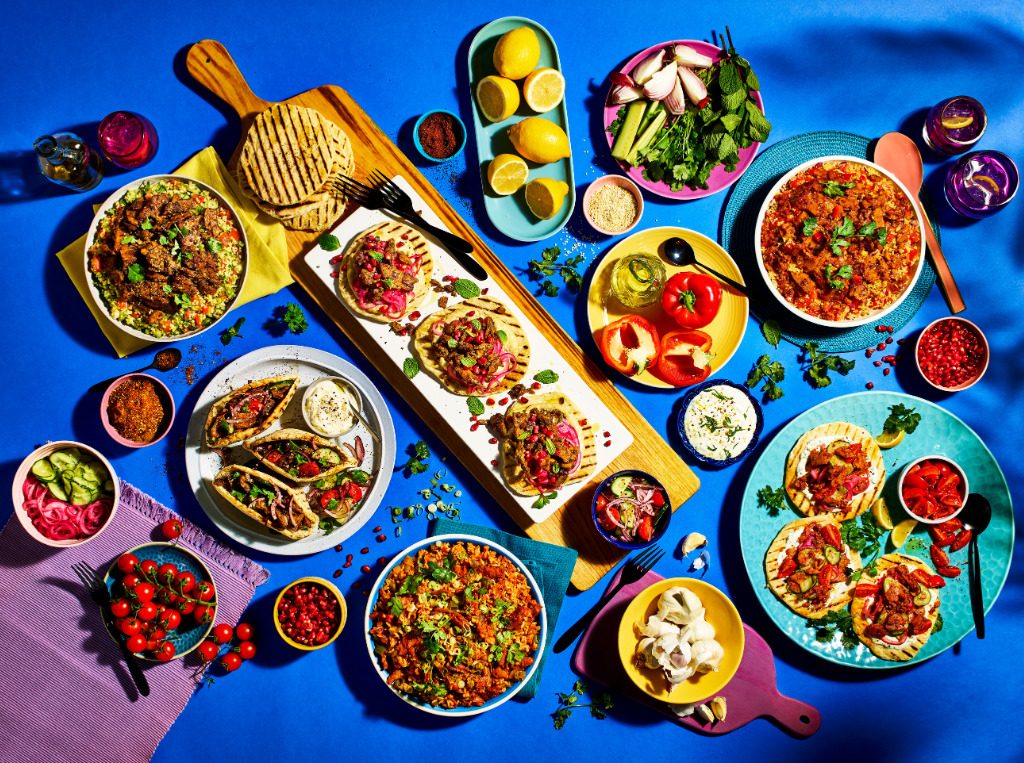Quorn CEO on Blended Meat: ‘It Doesn’t Matter How People Join the Meat Reduction Journey’
7 Mins Read
Quorn Foods is entering the blended meat category as part of foodservice and hospital offerings – its CEO Marco Bertacca explains why the mycoprotein giant is doing so.
British meat-free leader Quorn Foods’ mycoprotein will be mixed with conventional meat as part of a new line of blended meat products for foodservice operators, including at the UK’s National Health Service (NHS) hospitals.
The supplier will provide its fungi-based protein to catering companies, which will combine it with beef and pork to develop staples like burgers and sausages. As part of Quorn’s evolution from a business that sought to “help a few people eat no meat” to one that “helps everyone eat less meat”, the blended meat products – with 50% mycoprotein, 50% meat – will be available before the end of the year.
As first reported by the Grocer, neither the finished products nor the menus will feature the Quorn brand name, instead containing a reference to the use of mycoprotein. The Monde Nissin-owned alternative protein giant’s involvement ends at the supply stage.
Blended meat has been around for a while, and its popularity has risen sharply over the last 12 months, with a host of startups coming up with their own products or providing plant- or fungi-based ingredients to established players in the meat industry.
However, this marks a major shift in the space: Quorn is a legacy brand and the market leader in the UK’s meatless category, but its sales – like the wider industry – have been suffering. To diversify and rejuvenate its offerings, the company launched its Marlow Ingredients division last year to supply mycoprotein to makers of meat and dairy analogues.
Now, it is taking a step further with the blended meat move, aiming straight for the UK’s burgeoning flexitarian population, which accounts for between 14-25% of the total. “If we can bring new people on the meat reduction journey with us, no matter which way they join, then that is only a good thing for the health of people and the planet,” Quorn CEO Marco Bertacca tells Green Queen.
“To create the change the planet needs, we have to find new ways to reduce meat consumption,” he adds, noting that the new blended meat products are “about providing solutions for everyone”.
Quorn’s blended meat holds multi-pronged benefits for the NHS

Bertacca argues that the reduction in meat and dairy isn’t happening fast enough, or with enough scale. The UK’s Climate Change Committee says animal consumption needs to be cut by 20% by 2030, although activists are urging as much as a 70% decline.
“Our mycoprotein can help solve two global problems – climate change and human obesity,” he says, suggesting that blended meat is just one example of Quorn’s updated mandate. The idea is to replace 100% core meat items on the menu with the mycoprotein blends.
“We are still in the development stages of our catering partnerships, but we are working with one of the largest catering companies in the world and their production partners, and the opportunity will see us feed millions of consumers every day with these options,” says Bertacca.
A major example is the NHS, the UK’s biggest employer, and one that feeds thousands of patients every day. “The multiple benefits this will deliver: fewer carbon emissions going into the atmosphere, as well as less saturated fat, less cholesterol, and more fibre going into their patients’ and employees’ diets,” he explains. “It is vital that we offer the right choices to patients and staff within a healthcare setting, serving great, nutritious food.”
One modelling study shows that a ‘plant-based by default’ approach could save the NHS £74M annually, with significant household savings too if patients are supported in making dietary shifts. Similar research by the Office of Health Economics estimated that if England were to adopt a completely plant-based diet, the NHS would see a net benefit of up to £18.8B a year.
Targeting flexitarians and contending with the climate

A sensory analysis published earlier this week showed that most plant-based products don’t satisfy omnivores (or flexitarians), except for chicken nuggets. But the only product that came within one point in average liking of a conventional burger was the Both Burger by 50/50 Foods, which blends beef with an equal amount of vegetables.
“Taste is a primary purchase driver for all food products. If blended meats can offer better taste profiles for omnivores today, they have a significant role to play in the protein transition,” Caroline Cotto, director of Nectar – which carried out the research – told Green Queen.
“Once upon a time, we were effectively competing with the meat industry – only making products that were alternatives to theirs, and encouraging people to switch. Of course, we still offer these products, but as human knowledge has evolved, businesses are evolving, including ours,” says Quorn’s Bertacca.
“We now find ourselves collaborating to offer less-meat options to consumers who are looking to reduce meat consumption, but not eat vegetarian or vegan meals. This represents the majority of people, and so it is a massive opportunity to decarbonise part of the food system and improve public health,” he adds.
Blended meats can have a sizeable impact on emissions reduction. Research shows that replacing just half of our meat consumption with plant-based can lower agricultural and land use emissions by 31%, and effectively halt deforestation. Australian startup Harvest B, which unveiled its blended meat lineup in April, says its products have a 46% lower carbon footprint than conventional meat.
Quorn says its mycoprotein generates 55 times fewer emisisons than beef, and 13 times fewer than pork. “Serving food to millions of people every day means the scale of the opportunity is huge. This will significantly reduce the carbon footprint of their menus, and so help them achieve their climate targets,” states Bertacca.
“The potential is huge for our customers. We are supporting them by providing Quorn to create lower environmental impact menus than they currently serve.”
Taste credentials could help blended meat – and alternative proteins

Earlier attempts – like Tyson Foods’ Raised & Rooted or Aldi’s BBQ Flexitarian Burger – failed to put blended meat on the map. There were multiple reasons behind this: the labelling was all wrong, the taste wasn’t satisfactory enough, and the timing just wasn’t right.
Recent innovations are looking more promising. 50/50 Foods’ Both Burger is now on the menu at Disneyland, Phil’s Finest has been progressing well for years, after finding success on Shark Tank (under its former name Misfit Foods), and Mush Foods’ mycelium-based 50Cut is now part of a blended burger developed by meat purveyor Pat LaFrieda.
One of the most successful products in this space is Perdue Farms’ Chicken Plus range, which combines chicken with The Better Meat Co‘s mycelium meat. “When you look at Perdue’s offering, it talks about getting kids to eat veggies without having to sneak it in. They are clear on their target market – parents who are dying to figure out how to get their kids to eat vegetables – state a clear value proposition, and stay true to the format and offering their target market wants and needs,” Steve Molino, principal at Florida VC firm Clear Current Capital, told Green Queen last year.
Even McDonald’s chicken nuggets technically fall under the blended meat category. “Assuming that blended companies can create products that taste good, it will simply come down to traditional food business fundamentals,” Molino added.
This is what Bertacca alludes to as well. “There have been attempts to make products like burgers and sausages with a blend of meat and plant-based ingredients like soya and pea protein, but the products have not delivered,” he says. “The partners we are working with tell us that Quorn is by far the best meat alternative for this application, because of our unique mycoprotein and its meat-like texture.”
Alternative proteins have had it tough in the last couple of years, with a downturn in investment, a decline in sales, and an uptick in misinformation. Could blended meat renew enthusiasm for the category, and push more people to eat less meat, and eventually more plant-based? That would certainly be Quorn’s goal.
“Yes, the category, like many others, has seen a slowdown, but we must not forget that comes against the backdrop of many consecutive years of incredible growth in meat-free eating,” Bertacca points out.
“Now is the time to start talking about the solutions we can achieve together as an industry, rather than focusing on the challenges.”



